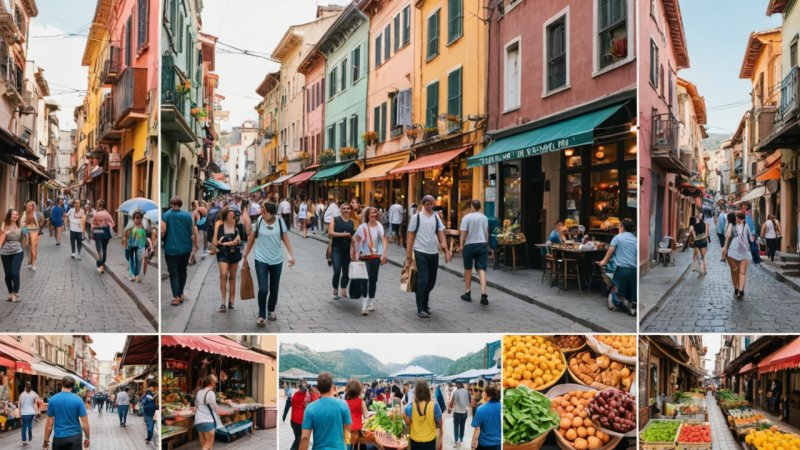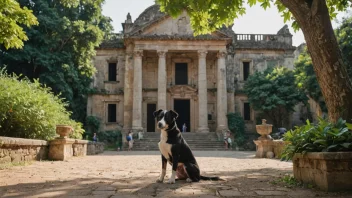Traveling doesn’t have to break the bank. With careful planning and smart choices, you can explore the world on a budget and still have an unforgettable experience. This article provides you with detailed strategies to maximize your travel budget, ensuring that you see and do as much as possible without overspending. From choosing the right destinations to finding budget-friendly accommodations and activities, this guide will help you travel smartly and enjoyably.
Understanding Your Travel Budget
Before embarking on any journey, it's crucial to establish a clear understanding of your travel budget. A well-structured budget will not only help you track your expenses but also give you a realistic idea of how much you can spend in different areas throughout your trip.
Setting Your Budget
- Determine Your Total Budget: Start by deciding how much you can afford to spend on your trip. Consider all sources of income and savings you can allocate for travel.
- Break Down Your Expenses: Divide your budget into categories: transportation, accommodation, food, activities, and souvenirs.
- Include a Contingency Fund: Set aside a portion of your budget for unexpected expenses that may arise during your travels.
Prioritizing Your Spending
Identify what aspects of your travel experience are most important to you. Whether it’s fine dining, luxurious hotels, or thrilling activities, prioritize your spending based on your interests.
Choosing Budget-Friendly Destinations
The destination you choose can significantly impact your travel budget. Some places are inherently more affordable than others, providing better value for your money.
Researching Affordable Destinations
- Consider Off-Peak Travel: Traveling during the off-peak season can help you save money on flights and accommodations, as prices tend to drop.
- Look for Emerging Destinations: Explore less popular or emerging destinations where your money can go further compared to well-trodden tourist spots.
- Utilize Travel Blogs and Forums: Engage with travel communities and read blogs to discover budget-friendly destinations recommended by fellow travelers.
Finding Affordable Accommodations
Accommodations can be one of the largest expenses while traveling. However, there are various ways to secure affordable lodging without sacrificing comfort.
Types of Budget Accommodations
- Hostels: Ideal for solo travelers and backpackers, hostels offer shared dormitory-style living at a fraction of hotel prices.
- Guesthouses and B&Bs: Look for local guesthouses or bed and breakfasts for a more intimate experience and often lower rates.
- Vacation Rentals: Websites like Airbnb offer local homes or apartments that can be more economical, especially for groups or families.
Tips for Booking Accommodations
- Book in Advance: Secure your accommodation early on to take advantage of lower prices, especially during peak seasons.
- Use Comparison Sites: Utilize hotel comparison websites to find the best deals and read reviews to ensure quality.
- Join Loyalty Programs: Sign up for loyalty programs or credit cards that offer travel rewards, which can lead to discounts or free nights.
Saving on Transportation
Transportation costs can add up quickly, but there are various ways to save money on getting around.
Air Travel Tips
- Be Flexible with Dates: Use flight comparison tools to find the cheapest dates to travel. Sometimes flying a day earlier or later can save significant amounts.
- Consider Nearby Airports: Check if flying into or out of a nearby airport offers better rates.
- Sign Up for Fare Alerts: Use fare alert services to get notifications when prices drop for your desired route.
Ground Transportation Options
- Public Transport: Use buses, trams, or subways to navigate cities instead of taxis, as they are often much cheaper.
- Walk or Bike: Explore your destination on foot or by renting a bike to save money and enjoy the sights up close.
- Car Rentals: If renting a car, compare prices and consider smaller, local companies for better deals.
Eating on a Budget
Food is a significant part of the travel experience, but it doesn’t have to be expensive. Here are some strategies to enjoy delicious meals without overspending.
Dining Options
- Eat Like a Local: Seek out local eateries or street food instead of tourist traps for authentic and affordable dining experiences.
- Cook Your Own Meals: If your accommodation has kitchen facilities, buy groceries and cook your own meals to save money.
- Lunch Specials: Take advantage of lunch specials at restaurants, which are often cheaper than dinner menus.
Sample Local Cuisine Economically
- Food Markets: Visit local markets for fresh produce, snacks, and meals at lower prices than restaurants.
- Happy Hours: Check for happy hour deals at bars and restaurants for discounted drinks and appetizers.
Maximizing Activities and Experiences
Engaging in local activities and experiences doesn’t have to cost a fortune. With some planning, you can enjoy enriching experiences while staying within your budget.
Free and Low-Cost Activities
- Walking Tours: Many cities offer free walking tours run by locals, providing valuable insights without the hefty price tag.
- Local Festivals and Events: Participate in local festivals or events that are often free or have minimal entry fees.
- Nature and Parks: Explore national parks, beaches, and hiking trails, as they typically have low or no entrance fees.
Discount Passes and City Cards
- Research City Passes: Some cities offer discount passes that provide entry to multiple attractions at a reduced rate.
- Attraction Deals: Look for online deals or coupons for popular attractions to save on entry fees.
Staying Connected and Informed
Staying connected while traveling can help you save money and stay informed about local deals and activities.
Utilizing Technology
- Download Travel Apps: Use apps like Google Maps, TripAdvisor, or local public transportation apps to navigate and find activities more efficiently.
- Wi-Fi Access: Take advantage of free Wi-Fi at cafes, libraries, or public spaces to avoid international data charges.
- Connect with Locals: Use social media or travel forums to connect with locals who can provide insights on budget-friendly options.
Conclusion
Traveling on a budget requires careful planning and smart decision-making, but it is entirely possible to have an enriching travel experience without overspending. By understanding your budget, choosing affordable destinations, finding budget accommodations, saving on transportation and food, and maximizing your activities, you can enjoy every aspect of your journey. With these tips in mind, you’ll be well-equipped to explore the world while keeping your finances in check, ensuring that your travel experiences are both memorable and affordable.






